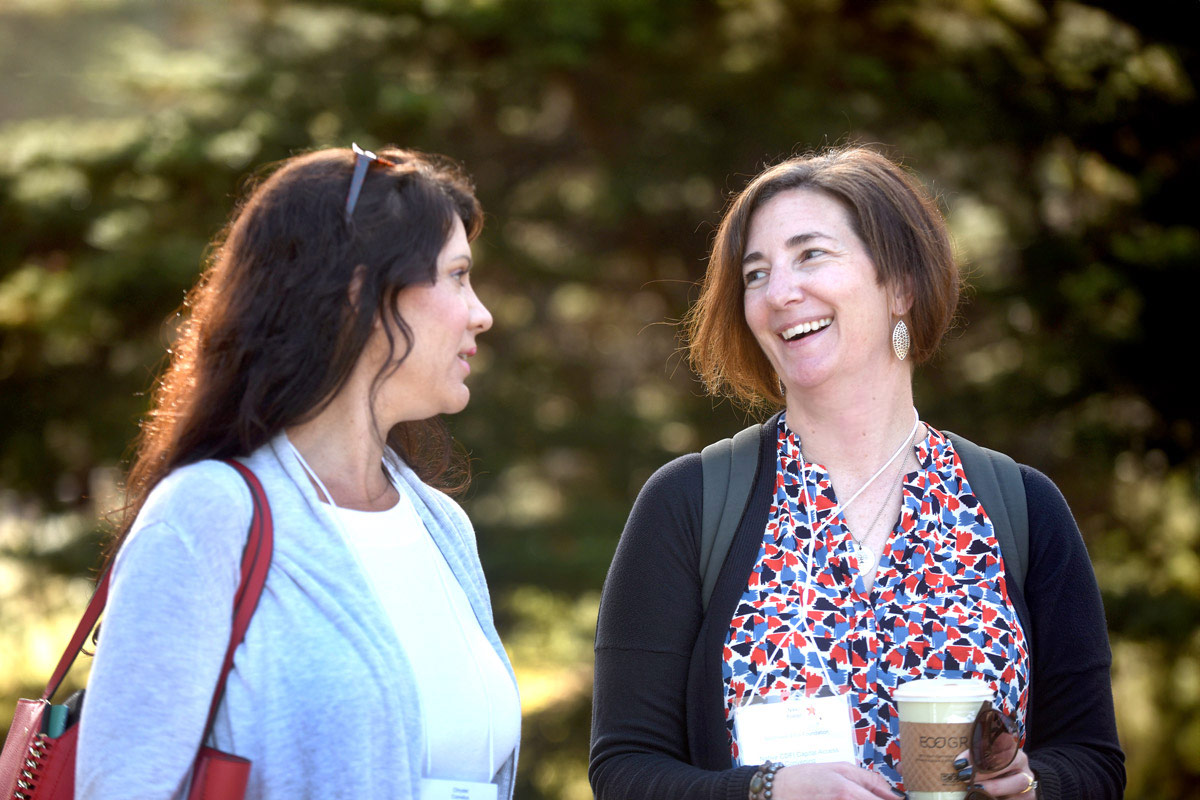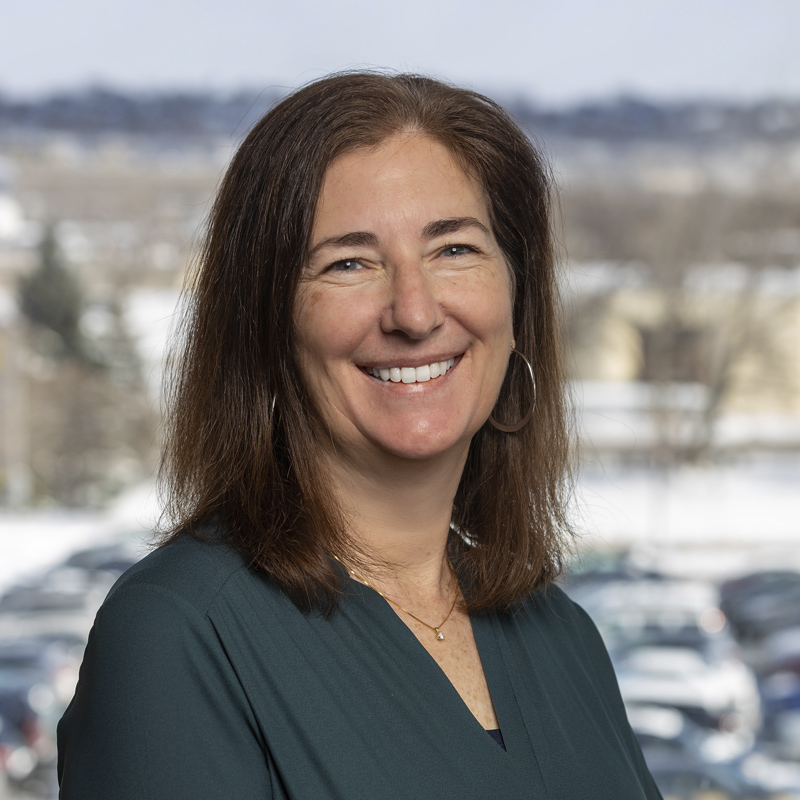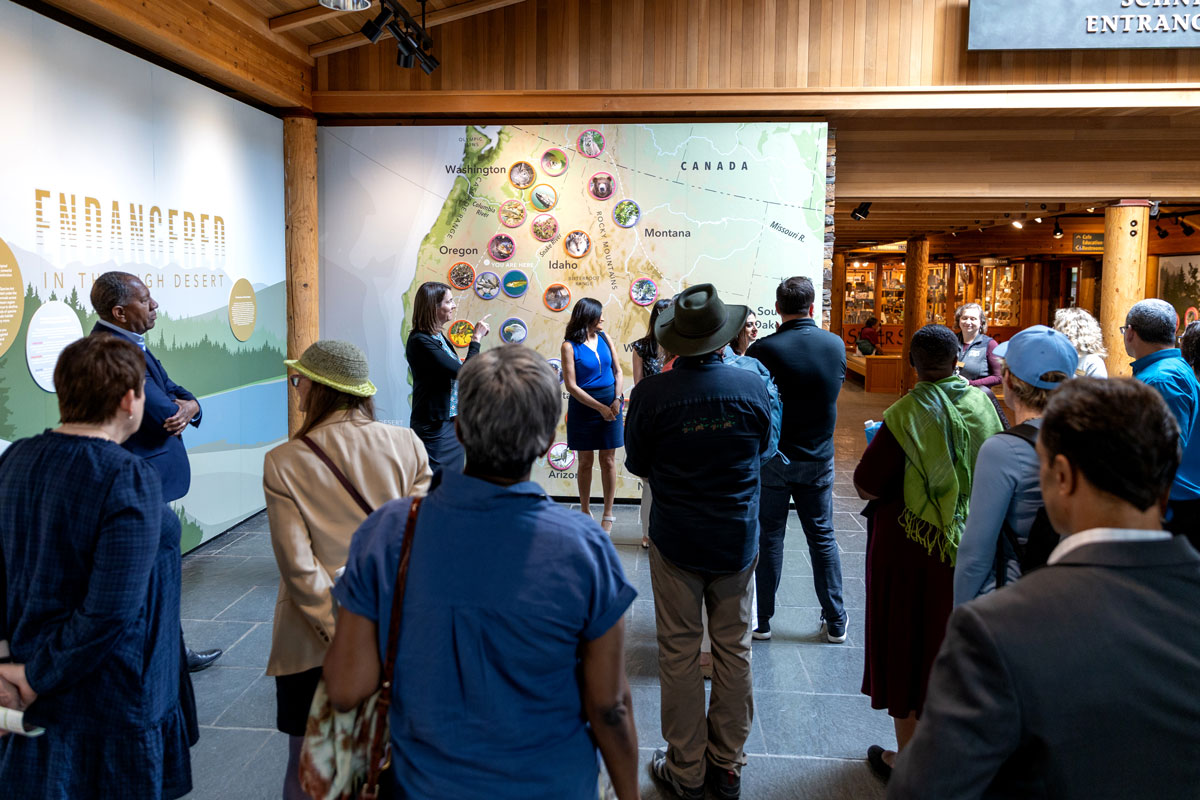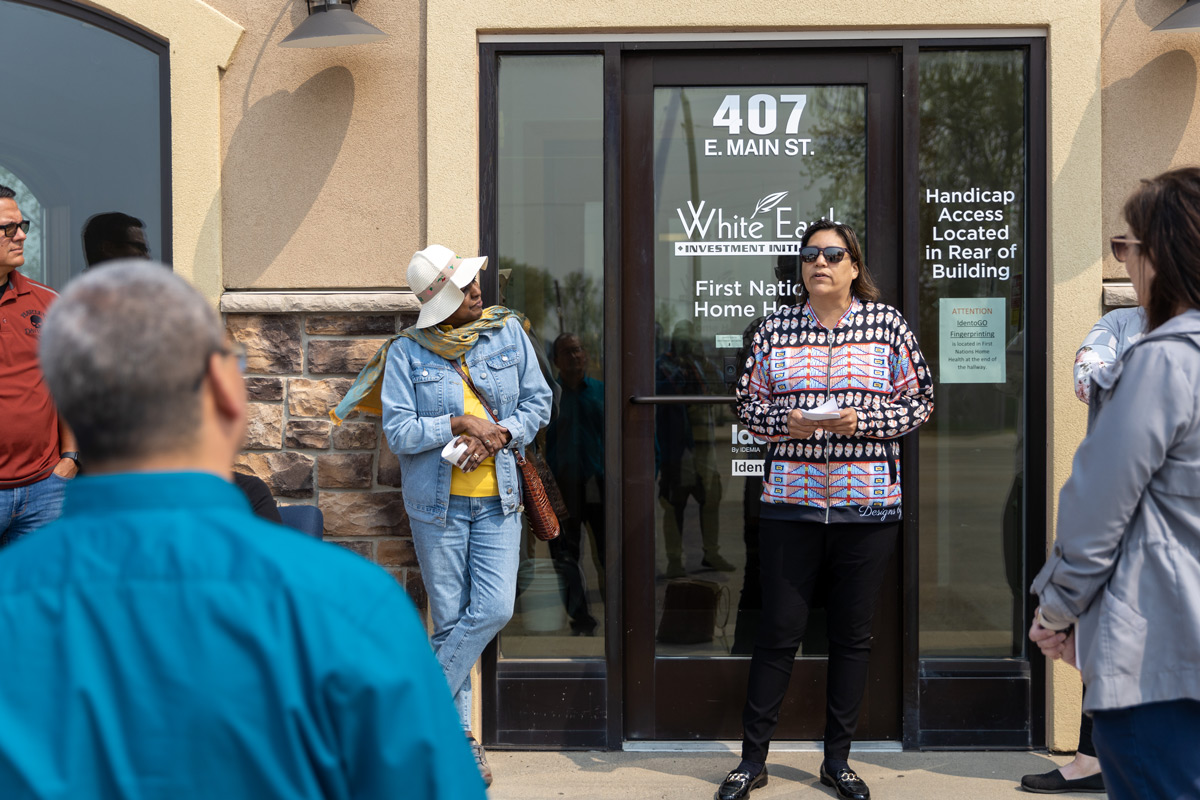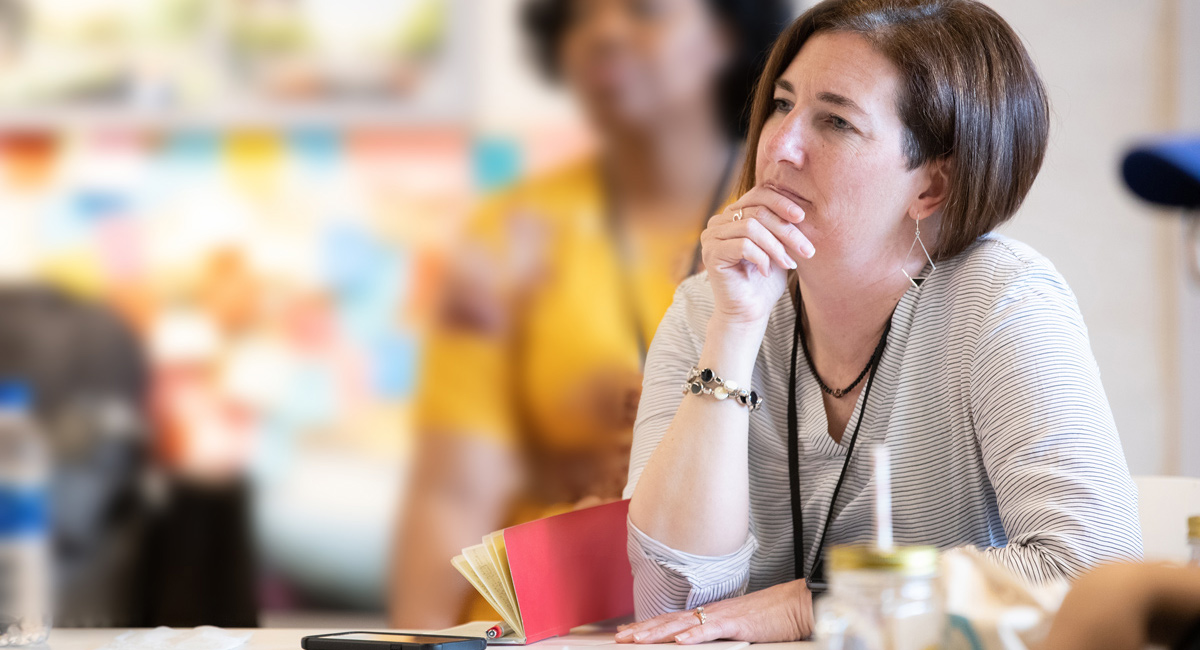
Nikki reflects on content shared by a speaker during the 2019 Northwest Area Foundation staff and board retreat.
I try to be an ally by being selective about when to speak up—and then making sure what I say is an authentic expression of solidarity and understanding because silence can also cause harm.
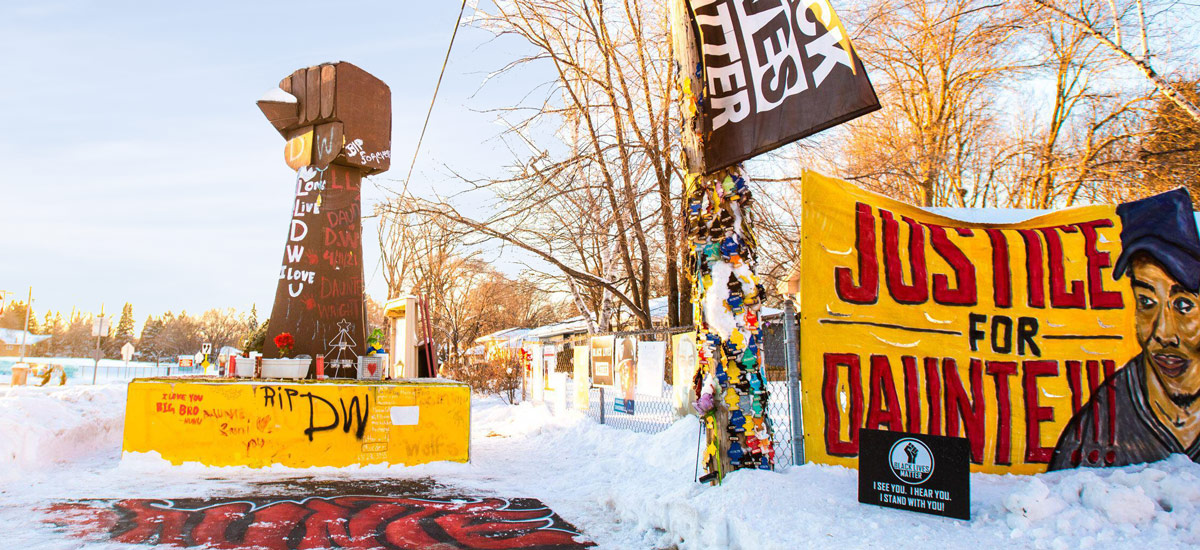
This passionate makeshift memorial for Daunte Wright in Brooklyn Center, MN, was the inspiration for a permanent memorial installed two years later at the same site.
I was studying sociology [in college], which looks at systems. Once you pick up that lens, you can’t stop seeing the world as interacting systems—and that perspective, alongside my lived experience in an interracial family, remains central to how I view my work at the Foundation today.
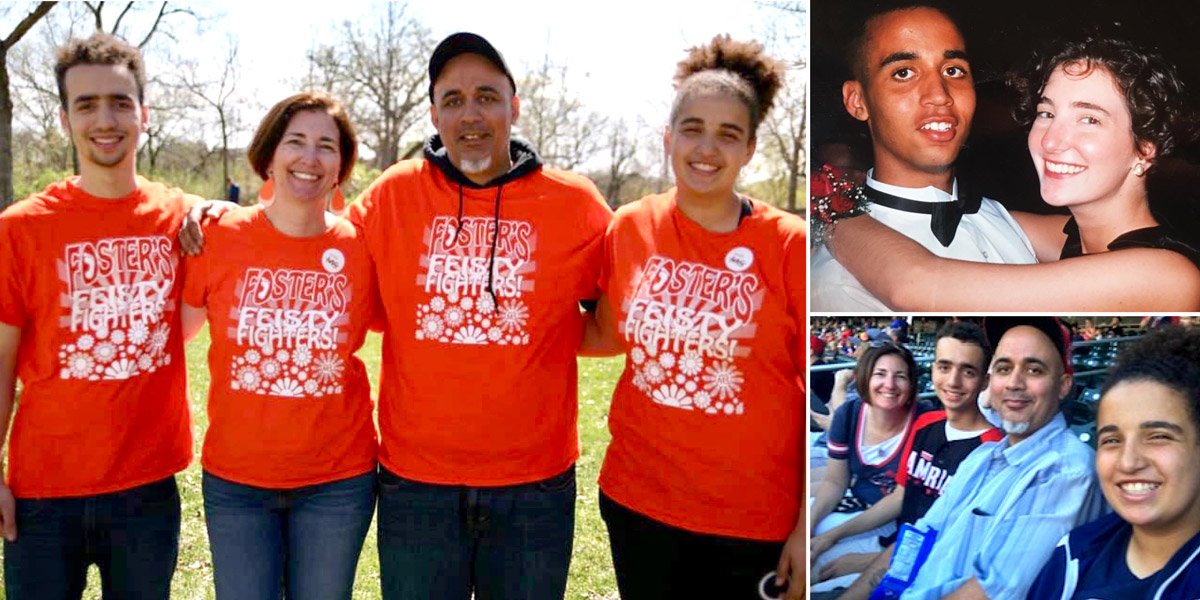
Clockwise from left: Walk MS Twin Cities “Foster’s Feisty Fighters” members flank team captain Nikki (second from left), who lives with MS, in shirts designed by NWAF employee Patrick Ciernia; the team has raised $50,000+ since 2015 to help create a world free from MS. Nikki and her husband, sweethearts since high school. Nikki and her family enjoy a Minnesota Twins game. Photos courtesy of Nikki Foster.
Deeper relationships nourish trust that helps us be better, more responsive partners to our grantee organizations. That, in turn, helps them best serve their communities.

